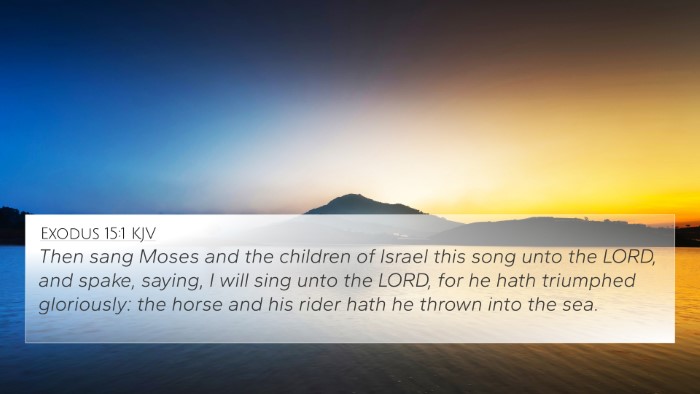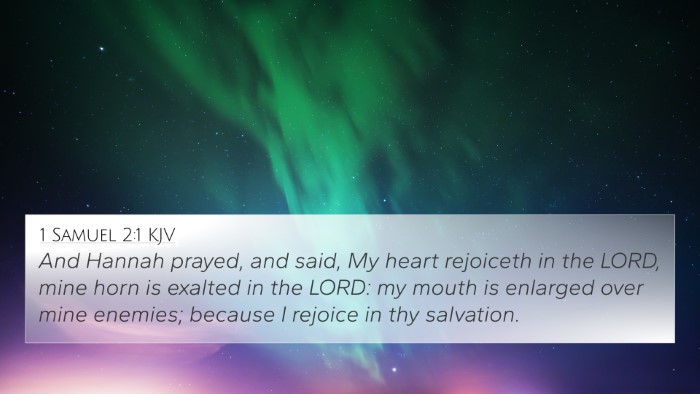Understanding Isaiah 38:9
This verse serves as a poignant moment in the Book of Isaiah, encapsulating the reflections of King Hezekiah as he contemplates his illness and divine deliverance. The context of Isaiah 38:9 is significant, as it reveals the relationship between human vulnerability and divine mercy.
Verse Text
"The writing of Hezekiah king of Judah, when he had been sick, and was recovered of his sickness." (Isaiah 38:9)
Commentary Insights
Insights from prominent public domain commentaries clarify and expand on the meaning of this verse:
- Matthew Henry: Henry emphasizes the personal nature of Hezekiah's reflection. He notes that this verse is part of a larger narrative demonstrating God's power over life and death. Hezekiah's recovery serves as a testimony to God's mercy and serves as an encouragement to future generations regarding the power of prayer and faith.
- Albert Barnes: Barnes reflects on the theme of divine healing and the assurance that God provides. He underscores that Hezekiah’s writing is a personal account which reinforces God’s faithfulness in times of trouble. The act of writing down his experiences signifies a deeper understanding of grace and restoration.
- Adam Clarke: Clarke adds additional depth, suggesting that this personal testimony not only recalls Hezekiah’s thankfulness but also serves as a warning against pride and self-sufficiency. His illness and recovery become an opportunity for reflection on human mortality and dependence on God.
Bible Cross-References
This verse connects with various other scriptures, which further illuminate its themes:
- 2 Kings 20:1-6: The account of Hezekiah's illness and prayer for healing.
- Psalms 30:2: A song of thanksgiving for healing and deliverance.
- James 5:14-15: The instruction for prayer and anointing in times of illness.
- Isaiah 53:5: The prophecy of suffering and healing through the Messiah.
- John 11:4: Jesus speaks of illness as an avenue for God’s glory.
- Isaiah 61:1: The proclamation of good news and healing as part of the mission of the Messiah.
- Matthew 9:12: Jesus responds to His critics, affirming His intention to heal the sick.
Thematic Connections
Isaiah 38:9 can be linked to several overarching biblical themes:
- Divine Healing: God's ability and willingness to heal reflects His love and mercy.
- Human Vulnerability: The sickness of Hezekiah remains a reminder of humanity's frailty.
- Faith Through Trials: Hezekiah's prayer serves as an example of seeking God during difficult times.
- Testimonies of Faith: The act of recording personal experiences relates to the legacy of faith for future generations.
Inter-Biblical Dialogue
Analyzing Isaiah 38:9 in light of broader scriptural contexts, one can note:
- Comparative Study: The connections between Hezekiah's story and New Testament healing narratives can foster a deeper understanding.
- Links to the Prophets: Understanding how prophetic literature addresses human suffering offers a holistic biblical perspective.
- The Role of Prayer: Multiple verses emphasize prayer's power and efficacy, elucidated in both Testaments.
Conclusion
Isaiah 38:9 has rich meanings layered within the narrative of Hezekiah’s experience. The themes of healing, divine mercy, and personal reflection contribute to its enduring relevance for biblical readers today.
















